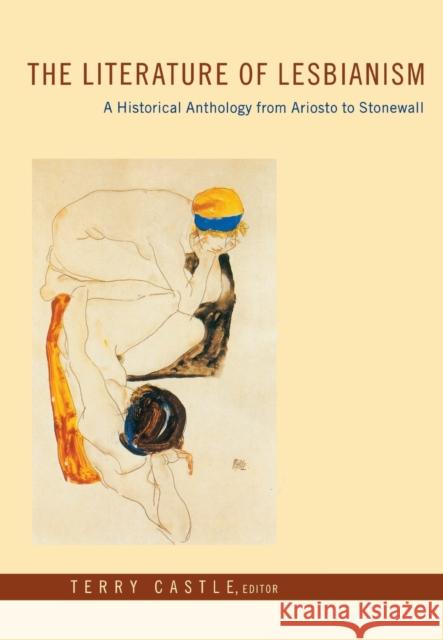The Literature of Lesbianism: A Historical Anthology from Ariosto to Stonewall » książka
The Literature of Lesbianism: A Historical Anthology from Ariosto to Stonewall
ISBN-13: 9780231125116 / Angielski / Miękka / 2005 / 1136 str.
The Literature of Lesbianism: A Historical Anthology from Ariosto to Stonewall
ISBN-13: 9780231125116 / Angielski / Miękka / 2005 / 1136 str.
(netto: 205,38 VAT: 5%)
Najniższa cena z 30 dni: 213,44 zł
ok. 30 dni roboczych
Bez gwarancji dostawy przed świętami
Darmowa dostawa!
Since the Renaissance, countless writers have been magnetized by the notion of love between women. From Renaissance love poems to twentieth-century novels, plays, and short stories, The Literature of Lesbianism brings together hundreds of literary works on the subject of female homosexuality. This is not an anthology of "lesbian writers." Nor is it simply a one-sided compendium of "positive" or "negative" images of lesbian experience. Terry Castle explores the emergence and transformation of the "idea of lesbianism" its conceptual origins and how it has been transmitted, transformed, and collectively embellished over the past five centuries.
Both male and female authors are represented here and they display an astonishing and often unpredictable range of attitudes. Some excoriate female same-sex love; some eulogize it. Some are salacious or satiric; others sympathetic and confessional. Yet what comes across everywhere is just how visible--as a literary theme--Sapphic love has always been in Western literature. As Castle demonstrates, it is hardly the taboo or forbidden topic we sometimes assume it to be, but has in fact been a central preoccupation for many of our greatest writers, past and present. Beginning with an excerpt from Ariosto's comic epic poem, Orlando Furioso, the anthology progresses chronologically through the next five centuries, presenting selections from Shakespeare, John Donne, Katherine Philips, Aphra Behn, Sor Juana Ines de la Cruz, Alexander Pope, the Marquis de Sade, Samuel Taylor Coleridge, Charlotte Bronte, Emily Dickinson, Guy de Maupassant, Henry James, Willa Cather, Virginia Woolf, Ernest Hemingway, Nella Larsen, Colette, and Graham Greene, among many others. It also includes some anonymous works--several published here for the first time--as well as numerous translations from the writers of antiquity, such as Sappho, Ovid, Martial, and Juvenal, whose rediscovery in the early Renaissance helped shape subsequent Western literary representations of female homosexuality.










